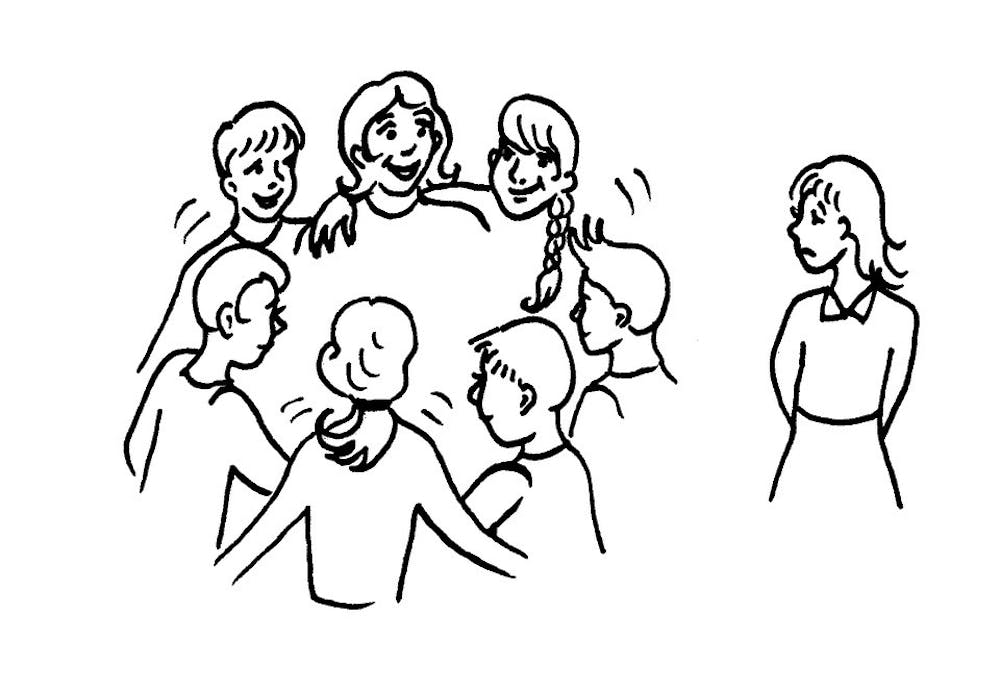There is no moral, ethical, or intellectual justification for Bicker.
Bicker is antithetical to the values that the University and its student body supposedly stand for: inclusivity, social justice, equity, access, and empathy, to name several. The vast majority of us claim to be “liberal” or “progressive” or “woke” or an “ally,” yet, last February, a staggering 74 percent of the Class of 2020, including myself, sold our souls to this inherently illiberal, exclusionary, elitist system and bickered at least one of the six selective eating clubs (Cannon Dial Elm Club, Cap & Gown Club, University Cottage Club, Ivy Club, Tiger Inn, or Tower Club).
I implore all members of the Class of 2021 who plan to bicker this February to reconsider their decision, but I anticipate most will not think twice about participating in the process.
Worse still, with the exception of some well-intentioned yet inconsequential examples, there isn’t any semblance of a student movement on campus fighting to eliminate Bicker and to, say, replace it with a self-selecting, preference-based lottery system or to replace the eating clubs entirely with the construction of upper-year dining halls. Any reform that upends the cruelty and social hegemony of Bicker would be a huge step forward.
Full disclosure: I spring- and fall-Bickered the same selective club, and, as you would expect, I got hosed both times. Hence, I am far from an unbiased analyst of the system, and I am a perfect example of an ideological opponent of Bicker who has been thoroughly and willfully complicit in perpetuating it.
Nonetheless, my experience, for what it’s worth, has overexposed me to the moral disingenuousness of Bicker, which compelled me — albeit retrospectively — to reexamine my own decision to participate in the institution.
One of the absurdities I witnessed during Bicker was the performance of (faux) compassion and community care. Bicker leaders try to promote an environment of inclusion and safety: They tell you to approach them with any problems, and they let you know that they “just want to get to know you” and that you shouldn’t be “nervous.”
In reality, though, those leading the Bicker process couldn’t care less about getting to know someone genuinely or easing their nerves. The process simply serves as a cover for selecting a club population that is, more or less, predetermined before Bicker even begins, as interpersonal connections and social status matter 10 times more than how a Bickeree performs during Bicker itself.

And Bicker is an inherently anxiety-provoking process because, no matter what some students claim, one’s Bicker result can have a substantial social and emotional impact on their upper-year experience at the University.
Similarly, there seems to be no legitimate, discernible system of evaluation for deciding who gets into a club and who gets hosed. And, hilariously, club members are sometimes sworn to secrecy about the process, as if Bicker was some self-important, quasi-religious cult procession.
While one can easily point to the University’s admissions process as another inherently exclusionary part of Princeton’s culture, the admissions office is, at least, transparent and concrete about what it looks for in prospective students. It’s clear that the University prioritizes scholarly achievement, extracurricular involvement, leadership, service, legacy status, athletic status, diversity and identity, geography, an applicant’s fundamental compatibility with campus life, etc.
Although the college admissions process is, in general, plagued by inequity (to say the least), and one could take issue with the admissions criteria itself, at least there is a basic, objective evaluative framework that informs the system and that reasonably correlates with the type of student that an educational institution has an interest in admitting.

Bicker, on the other hand, contains no such transparent, logical system of evaluation. If Bicker has any point, it is to determine — often baselessly — who would be a good social “fit” for a club’s culture.
Beyond the fundamentally illegitimate evaluative nature of the process, perhaps the most immoral element of Bicker is how it necessitates students to judge one another.
What gives any student the right to arbitrarily judge if another is fit enough to eat, socialize, and party with a particular group of peers? What moral justification could there be for one student to judge another on criteria that is at once unknown to the Bickeree and sometimes based on qualities that a Bickeree has no control over, such as their sexual attractiveness and orientation, race, gender, religion and moral values, class and ability to pay club fees, “likability,” “coolness,” “chillness,” willingness to drink (a lot), and their general position in Princeton’s unforgiving social hierarchy — a hierarchy that us students have intentionally perpetuated?
Furthermore, we, all too often, reflexively blame “the administration” of the University for the harms and ills of our student culture, which are compounded — or sometimes centrally fostered — by Bicker.
For example, we see our peers debilitated by loneliness and depression, because they believe they are not welcome at the University and do not fit the hegemonic social identity of an Ivy League student. In response, we claim administrators have not provided enough institutional supports for these students, or worse, we blame our struggling, anguished peers for their “weakness,” “self-absorption,” and inability to cope with the academic and social demands of Princeton life. And yet, curiously, we fail to consider our own complicity in student-driven processes, namely, Bicker, in which we actively and gratuitously exasperate the socioemotional struggles of our fellow Princetonians.
Students — and, to some extent, alumni — have absolute, independent control over whether or not Bicker exists. We could abolish the system tomorrow if we wanted to, but we, time and time again, choose to do nothing.
Samuel Aftel is a junior from East Northport, N.Y. He can be reached at saftel@princeton.edu.








